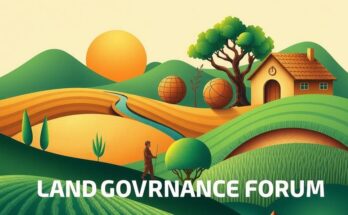In 2024, a record number of elections worldwide failed to foster democracy, benefiting autocracies and breeding violence rather than progress. The mass disillusionment with elections highlights their disempowering nature, as many view them as tools of oppression. Reform advocates propose moving beyond traditional electoral processes to enhance citizen empowerment and genuine democratic engagement.
As we transition into the new year, it is worth reflecting on the events of 2024, which witnessed an unprecedented number of elections worldwide, yet yielded little in the way of genuine democratic progress. While over four billion people participated in elections across more than 70 countries, the outcomes largely benefited autocratic regimes and failed to inspire meaningful change. Too many elections acted as instruments of oppression rather than avenues for democracy, with evidence from Freedom House revealing numerous cases of electoral manipulation and violence, including attempts to imprison opponents and disqualify dissenters.
The concept of elections and democracy are often conflated, yet they are fundamentally different. As Josh Lerner observed, “Our obsession with elections is killing democracy.” Many individuals no longer trust the electoral process to reflect their will or improve their communities. This perception is compounded by a surge of violative actions in 2024 elections, including assassinations of political candidates and rampant electoral intimidation, particularly in regions like Mexico, South Africa, and India.
Despite some political transitions marked by the loss of incumbents in various democratic nations, the year underscored the toxicity of electoral politics. Leonora Camner articulated this salient point, emphasizing that “Elections are fundamentally disempowering,” advocating instead for a shift towards empowering citizens through alternative democratic mechanisms. However, the entrenched interests that dominate electoral narratives often stifle such aspirations.
Significantly, in the United States, the post-election period saw a retreat by the Democratic Party from its commitments to democratic governance, favoring donor appeasement over substantive reform. This trend underscores the daunting reality that electoral politics often detracts from genuine civic engagement. Reform advocates like Matt Leighninger propose strategies for enhancing democratic participation, such as citizen assemblies, participatory budgeting, and stronger local governance frameworks.
Moving beyond the entrenched focus on electoral processes will be critical for fostering true democratic practices. As we reflect on the lessons of 2024, it becomes essential to recalibrate our efforts towards creating mechanisms that empower rather than constrain democratic engagement. This shift could be pivotal in recasting the narrative around democracy in our communities.
Elections have historically been heralded as a mechanism for democratic governance; however, the year 2024 illustrated a distressing trend where elections became tools of oppression rather than vehicles for public empowerment. Observers noted a troubling rise in election-related violence and manipulation, casting doubt on the integrity of the electoral process across numerous countries. The overwhelming investment in elections has led to disillusionment among the electorate, igniting calls for reform and a return to foundational democratic principles that prioritize citizen involvement in governance.
Ultimately, the events of 2024 serve as a cautionary tale, reminding us of the pitfalls of over-reliance on elections as synonymous with democracy. A collective reevaluation of democratic engagement is needed, fostering environments where citizens can actively participate in shaping their governance. This transformation requires concerted efforts to dismantle the barriers erected by entrenched interests and to establish frameworks that promote genuine participation and self-governance.
Original Source: stocktonia.org




